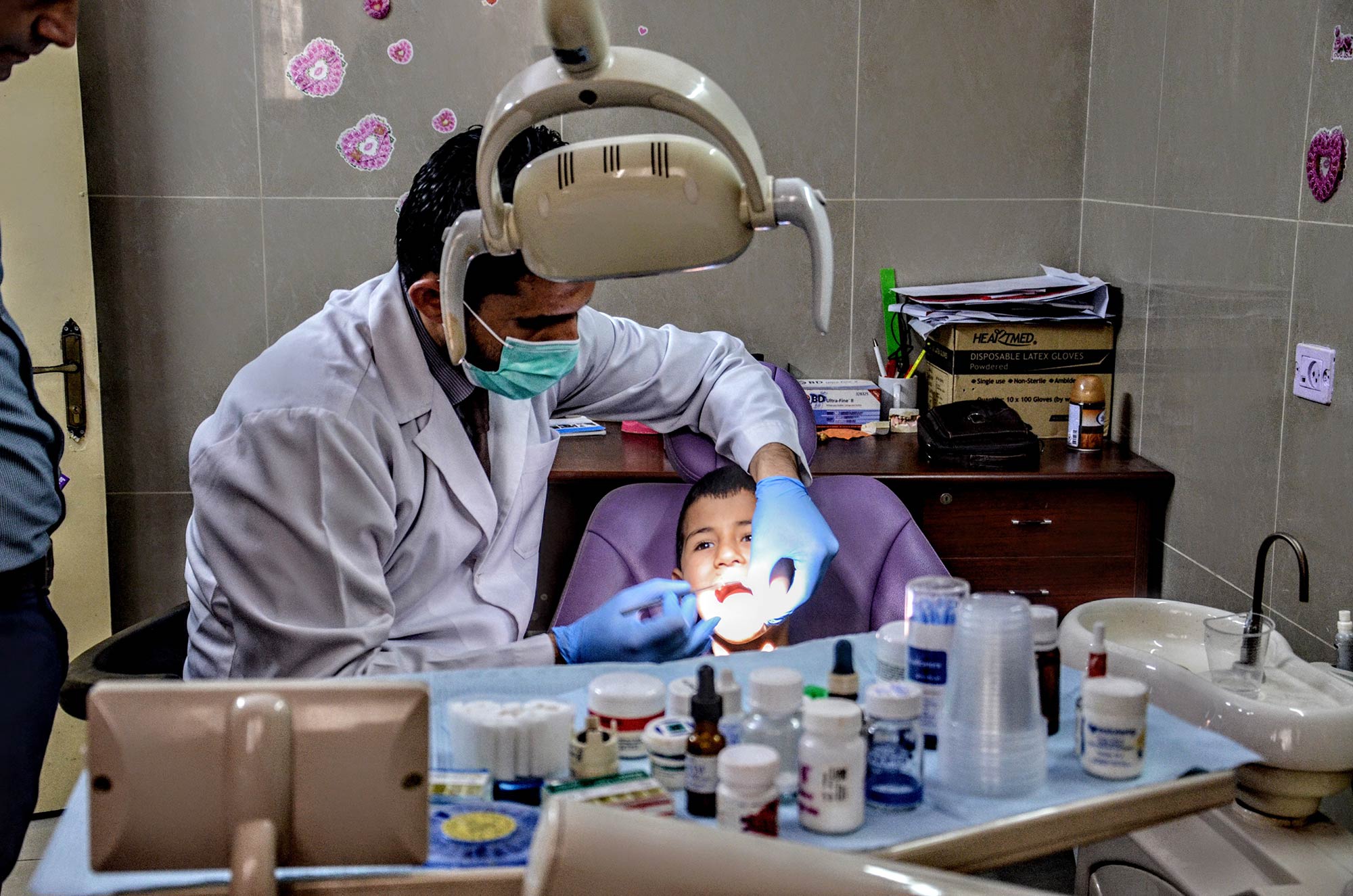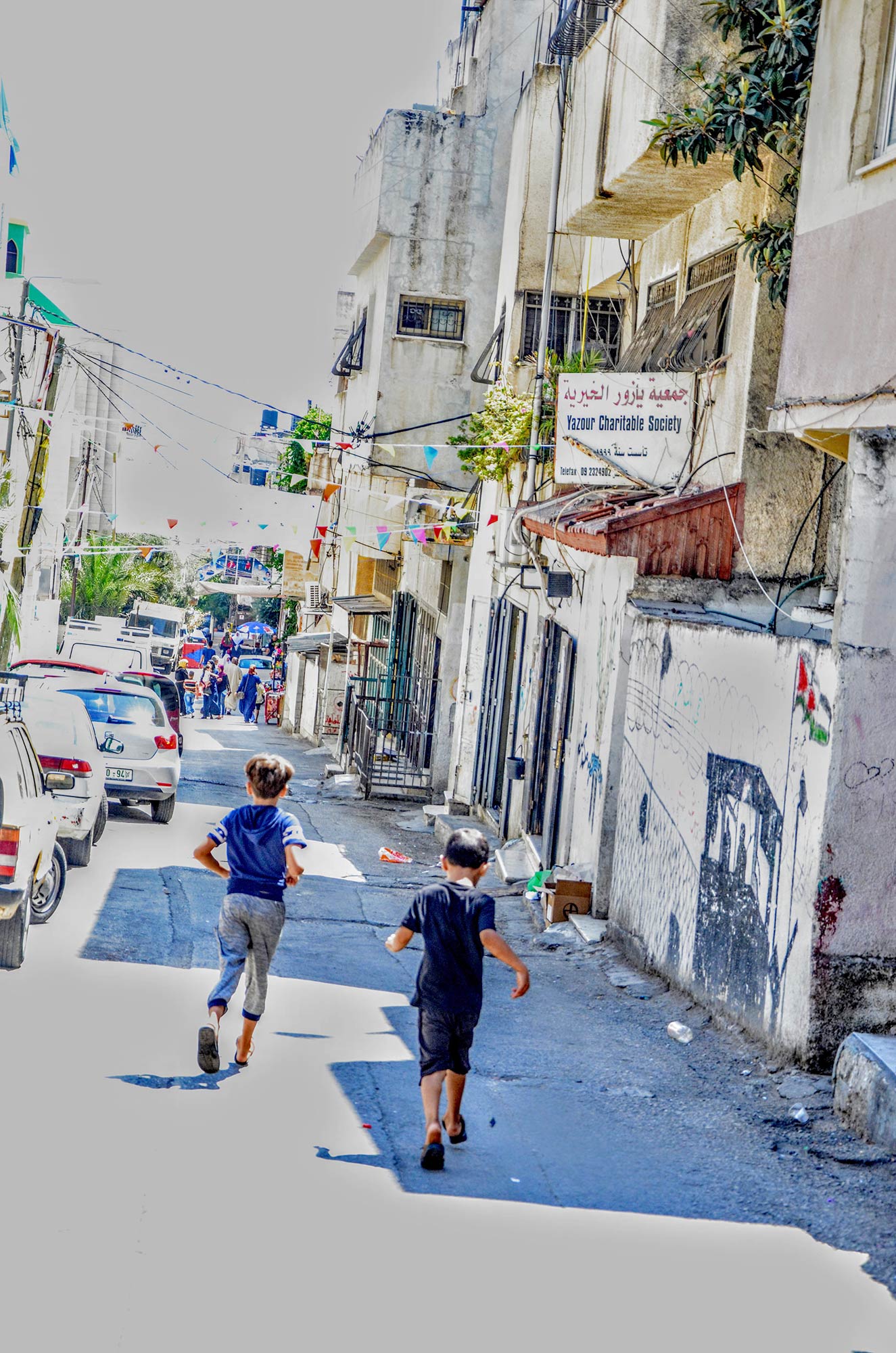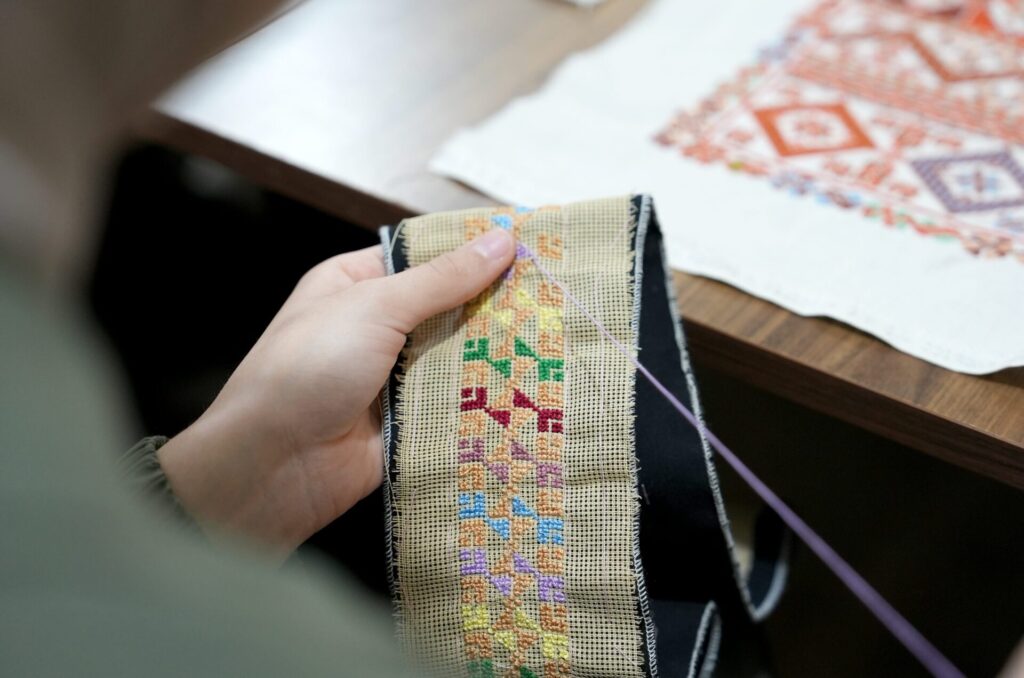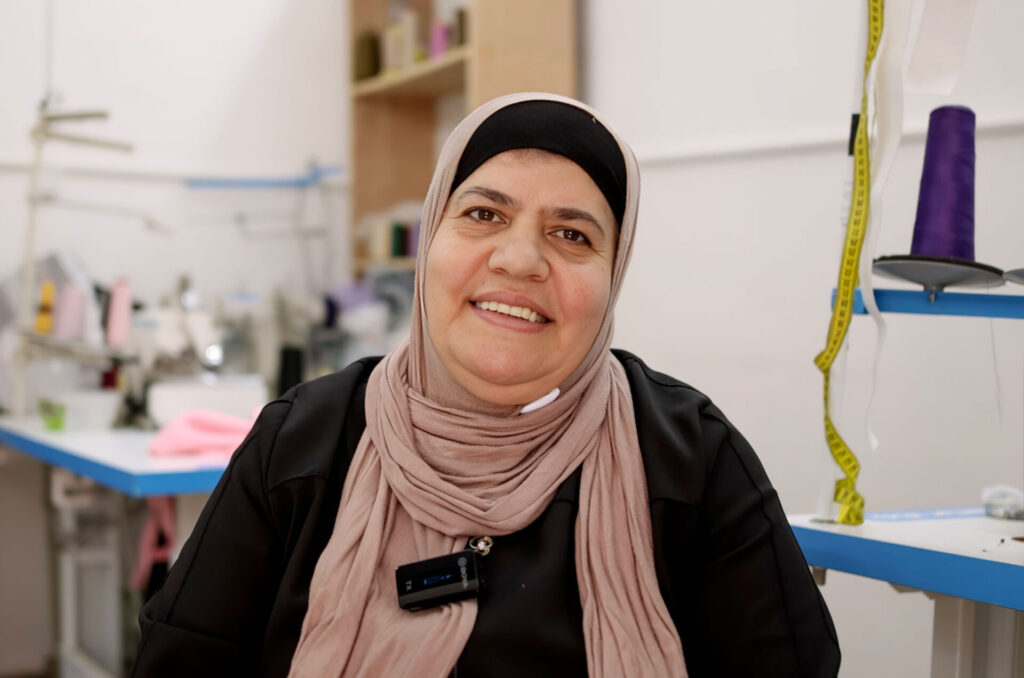HEALTH
Dental care for kids in a West Bank refugee camp
Oct, 2019
“My parents considered dental care an essential part of humanitarian work."—Dr. Zakaria Zaenoon
Dr. Zakaria Zaenoon has been working as a dentist in the Yazour Clinic in the West Bank Balata refugee camp since 2017. He is committed to providing essential care to children in the Palestinian refugee camps.
Zaenoon, whose parents are also dentists, followed in their footsteps. “My parents considered dental care an essential part of humanitarian work in poor areas,” said Zaenoon. “That outlook has been a driving force for them to volunteer and devote a lot of their time to making dental care available to anyone who needs it. I grew up watching them live their beliefs and that’s what I am doing now at the clinic.”
Cavities are one of the most common health problems he sees among children in the camp. “Poor oral hygiene and untreated cavities lead to further health problems,” Zaenoon says. “Pain and disrupted sleep can affect children’s ability to learn and increases the risk of chronic diseases.”
Eight-year-old Siraj, who lives in Balata camp, is in the clinic early, following a sleepless night. “My tooth really hurts. Last night was really horrible,” Siraj says.
Zaenoon gives Siraj a dental exam. The boy has swollen gums and an infection in his lower jaw. Zaenoon needs a five-day supply of the antibiotic Augmentin to treat Siraj. Fortunately, the clinic has it in stock, thanks to a donation provided by AmeriCares and distributed by Anera.

Augmentin is used to treat a range of bacterial infections, such as sinusitis, pneumonia, ear infections, bronchitis, urinary tract infections, and infections of the skin.
There are multiple challenges for health care providers in the camp. “There are shortages in our supply of medicines because of funding cuts for UNRWA. It has worsened economic pressure on the camp’s 28,000 residents,” Zaenoon says.
Since its establishment in 1999, the Yazour Center has offered medication to patients free-of-charge or at reduced rates. The clinic sees around 85 patients every day. Anera supplies about half of the clinic’s medicines. The center is also a community facility that offers classes, school bags and food to children in the refugee camp.


